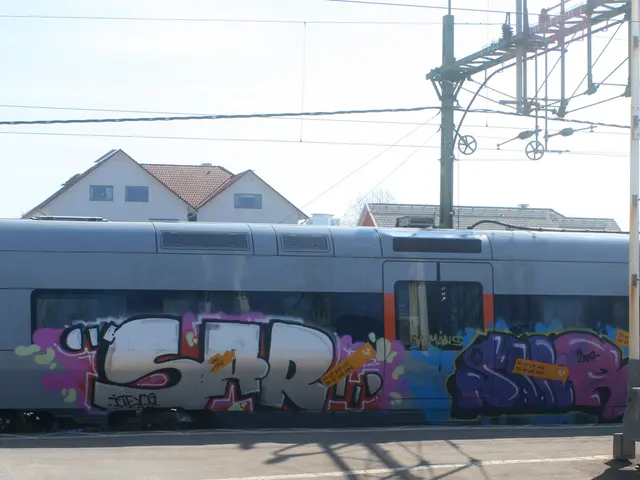"Auto-Pope" in ZF catastrophe: Given the circumstances, it's suggested to entomb the "future" in this disaster
ZF, a German automotive supplier, is navigating through turbulent times, burdened with nearly €10.5 billion in net debt and facing ongoing restructuring costs. However, there is a glimmer of hope, according to automotive expert Ferdinand Dudenhöffer.
To save ZF, the company is embarking on a journey of rigorous cost-cutting, strategic realignment, and focused investment in research and development (R&D), particularly in electrification and software-defined vehicle systems. Early 2025 results show some improvement in operational efficiency, with an adjusted EBIT margin rising to 4.4% and free cash flow turning positive at €465 million.
The cost of this turnaround is significant. ZF expects continued losses in 2025 due to restructuring expenses and interest on its high debt. Sales have declined, partly due to spinning off the axle assembly business into the ZF Foxconn joint venture. The restructuring involves scaling back production capacity to align with demand and investing around €3.6 billion in R&D, with 30% directed at electrification.
Partnerships with Asian companies, such as Foxconn, are a viable and integral part of ZF’s future. The ZF Foxconn joint venture focusing on axle assembly and chassis modules is part of ZF’s broader aim to accelerate its software-defined vehicle capabilities, leveraging Foxconn’s expertise in electronics and manufacturing scale. These collaborations help ZF offset some restructuring burdens and tap into Asia’s ecosystem, where companies are aggressively internationalizing and upgrading their technological offerings.
While risks remain—from economic headwinds and competition—early financial improvements and strategic alliances offer cautious optimism for ZF’s survival and eventual recovery.
Despite the challenges, Dudenhöffer is critical of ideas such as state aid for ZF or a temporary state takeover. He believes that ZF's main mistake in the past was not bringing the company to the stock exchange, which could have provided new equity capital and reduced debt. Hundreds of billions are being invested in the defense industry, making a spin-off with a defense industry company a "win-win situation."
Dudenhöffer advises ZF to consider the entire Asian region, especially Chinese companies, in its search for a partner. He sees a collaboration between ZF and a company from the defense industry as a "dream marriage." The enormous liabilities are now the biggest problem for ZF, according to Dudenhöffer, with a complete sale of ZF's loss-making powertrain division (Division E) being a possibility in the current situation.
The board has announced plans to cut around 14,000 jobs in Germany by 2028. Dudenhöffer predicts that the coming years will result in up to 75,000 job losses in the automotive and supplier industry in Germany. He rejects ideas from the labor camp, including suggestions of ZF as a state-owned company and politicians deciding whether a factory is built in China.
ZF's CEO, Holger Klein, is praised by Dudenhöffer for doing a "good job" in the difficult situation. Dudenhöffer estimates that a strong partner from the European automotive industry or the USA is not currently available, but sees a collaboration between ZF and a company from the defense industry as a viable strategy.
In conclusion, ZF's road to recovery is a challenging one, requiring new, unconventional approaches and new liquidity. With rigorous cost-cutting, strategic partnerships, and focused investment in R&D, particularly in electrification and software-driven technologies, ZF is taking steps towards a brighter future.
ZF is considering applying for a strategic partnership with a company from the defense industry to offset some restructuring burdens and tap into new equity capital, as suggested by automotive expert Ferdinand Dudenhöffer. In light of the ongoing restructuring and high debt, ZF's CEO, Holger Klein, is emphasizing the importance of focused investment in research and development, particularly in electrification and software-defined vehicle systems.




